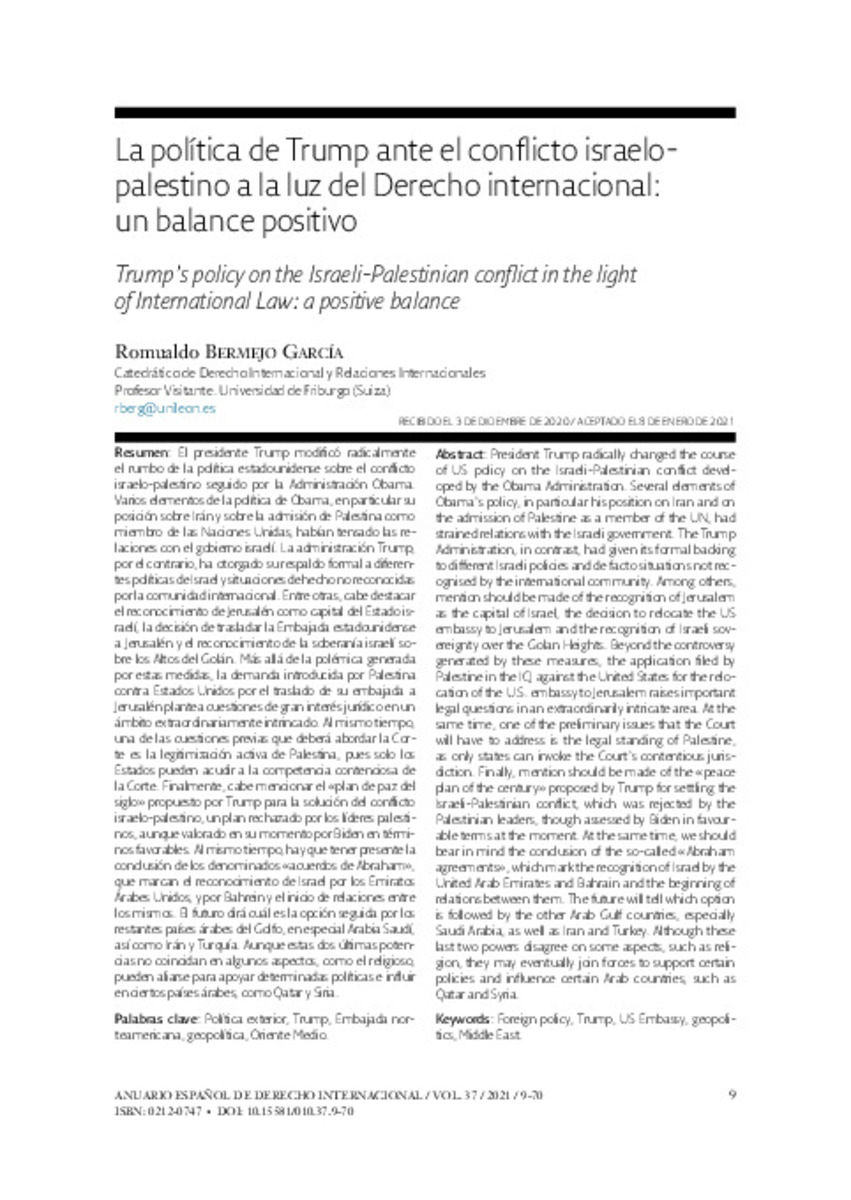La política de Trump ante el conflicto israelo-palestino a la luz del Derecho internacional: un balance positivo
Other Titles:
Trump’s policy on the Israeli-Palestinian conflict in the light of International Law: a positive balance
Keywords:
Política exterior
Trump
Embajada norteamericana
geopolítica
Oriente Medio
Publisher:
Servicio de Publicaciones de la Universidad de Navarra
Citation:
Bermejo-García, R. (Romualdo). "La política de Trump ante el conflicto israelo-palestino a la luz del Derecho internacional: un balance positivo". Anuario Español de Derecho Internacional. 37, 2021, 9 - 70
Statistics and impact
0 citas en

0 citas en

Items in Dadun are protected by copyright, with all rights reserved, unless otherwise indicated.









